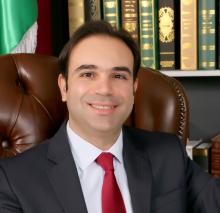You are here
Jordan-Saudi electricity link: A strategic step toward Arab energy unity
Apr 30,2025 - Last updated at Apr 30,2025
The electricity connection project between Jordan and Saudi Arabia is an important step in strengthening cooperation between the two countries. It shows that both sides understand the value of building a shared energy network that supports economic growth and helps deal with growing energy challenges.
This project is part of a bigger plan to create a shared Arab electricity market. By working together, countries in the region can improve the way they produce and share electricity, which can lead to more stable economies and stronger regional ties.
The connection between the two countries is not just about sharing electricity. It also helps both sides save money by using energy more efficiently. When one country has extra electricity, it can send it to the other, especially during high-demand periods. This means there is less need to build new power stations, which saves large amounts of money. The difference in energy demand between Jordan and Saudi Arabia during the day and across seasons creates a good chance for this type of exchange.
Another big benefit is the support this project gives to renewable energy. Solar and wind power are not always steady, so having a wider network makes it easier to manage changes in energy production. This encourages more investment in clean energy and reduces the need for expensive backup systems. Jordan also wants to become a center for regional energy trade, and this project helps by building a strong, flexible network.
The project also improves energy security. By linking to another country’s network, each side can get help quickly if there’s a power shortage or technical problem. It also builds stronger economic relationships and opens the door for joint electricity projects that could sell power to other countries in the future. If the network connects with other Arab countries, such as Egypt and members of the Gulf Cooperation Council, it could become part of a much larger system.
To succeed, the project needs to finish the three main agreements, on operations, implementation and trade, on time. There also needs to be clear rules to share profits and responsibilities fairly, and a good environment for private investors. If all these parts come together, this project will not just be about moving electricity. It will help create a stronger, more efficient, and more stable Arab energy system that supports long-term growth and helps face future energy and environmental challenges.
Raad Mahmoud Al -Tal is head of economics department- University of Jordan














Add new comment